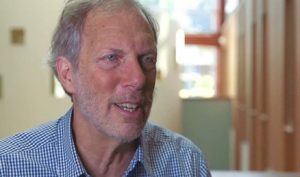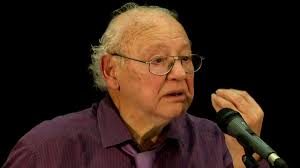Is Greece On The Road To Recovery, Or Will It Remain Trapped By Debt? An Interview With Economist Costas Lapavitsas
In early 2010, Greece became technically bankrupt as it was shut out from borrowing in the international credit markets because of skyrocketing deficits and huge public debt levels. Since then, the country has been under bailout programs created by the European Union (EU), the European Central Bank (ECB) and the International Monetary Fund (IMF) in order to keep it inside the eurozone. However, the bailout programs have been accompanied by brutal austerity measures that have had a catastrophic effect on Greek economy and society. Yet the current pseudo-leftist Syriza government — which has been enforcing the EU neoliberal agenda since coming to power in 2015, with greater dedication than any other Greek government since the outbreak of the crisis — declares today’s economic situation a “success story.” However, not everyone is buying the official story.
Costas Lapavitsas is a Marxist economist at the University of London. Since the outbreak of the eurozone crisis in 2010, he argued consistently in favor of Greek default and exit from the eurozone as the key to a left-wing strategy to confront the crisis. He produced much analytical work and his arguments had considerable influence within the left, but also more widely across Greek society. For several years, his name became widely associated with these policies and had influence within Syriza, even though its leadership was completely opposed to this strategy. In January 2015 he accepted an invitation by Syriza to join its electoral ticket as an independent, and was elected to the Hellenic Parliament with a great majority in his electoral region of Imathia.
Lapavitsas served as a member of parliament for seven months and was one of the leading voices in the country in favor of a radical course of action that would bring a political rupture with the lenders. The Syriza leadership, and especially the circle of Alexis Tsipras, tried systematically to marginalize him, keeping him away from positions of authority. When the Syriza leadership surrendered to the lenders in August, 2015, Lapavitsas left the party, together with more than 30 others. They were the true left of Syriza and tried to create an alternative left-wing party called Popular Unity. Unfortunately, their efforts have not been successful, partly because of their own organizational weaknesses, and partly because a disillusionment with the left prevailed in Greek society after the surrender of Syriza.
Is Greece on the road to economic recovery? In this interview, Lapavitsas suggests it is simply ludicrous on the part of a former left party to speak of a neoliberal success story for a country mired in poverty and debt. Read more
Chimamanda Ngozi Adichie ~ The Danger Of A Single Story
Our lives, our cultures, are composed of many overlapping stories. Novelist Chimamanda Adichie tells the story of how she found her authentic cultural voice — and warns that if we hear only a single story about another person or country, we risk a critical misunderstanding.
TEDTalks is a daily video podcast of the best talks and performances from the TED Conference, where the world’s leading thinkers and doers give the talk of their lives in 18 minutes. Featured speakers have included Al Gore on climate change, Philippe Starck on design, Jill Bolte Taylor on observing her own stroke, Nicholas Negroponte on One Laptop per Child, Jane Goodall on chimpanzees, Bill Gates on malaria and mosquitoes, Pattie Maes on the “Sixth Sense” wearable tech, and “Lost” producer JJ Abrams on the allure of mystery. TED stands for Technology, Entertainment, Design, and TEDTalks cover these topics as well as science, business, development and the arts. Closed captions and translated subtitles in a variety of languages are now available on TED.com, at http://www.ted.com/translate. Watch a highlight reel of the Top 10 TEDTalks at http://www.ted.com/index.php/talks/top10
How To Achieve Zero Emissions, Even If The Federal Government Won’t Help
With Donald Trump in the White House, the prospects for fighting climate change have never been any bleaker in the US. Yet there are options available to state governments to move forward with the greening of the economy even without federal support. This point is made crystal clear in two studies produced recently by economist Robert Pollin and some of his colleagues at the Political Economy Research Institute (PERI) at the University of Massachusetts at Amherst for the states of Washington and New York. In this exclusive interview for Truthout, Pollin explains the significance of Green New Deal programs.
C.J. Polychroniou: Bob, two new studies on fighting climate change have been produced by you and two PERI researchers for the states of New York and Washington. How did these studies come about?
Robert Pollin: These were both commissioned studies. For the New York study, the commissioning group was New York Renews, which is a coalition of over 130 organizations in New York State, including labor unions, environmental groups and social justice organizations. For the Washington State study, three important groups within the US labor movement commissioned the study — the United Steelworkers, Washington State Labor Council of the AFL-CIO and the Tony Mazzocchi Center for Health, Safety and Environmental Education (TMC). Tony Mazzocchi was a great visionary labor leader with the Oil, Chemical and Atomic Workers International Union (OCAW — [which] has since merged into the United Steelworkers), who fought to link the aims of working people with those of environmentalists.
It is not an accident that my co-workers and I were asked to do these similar studies at basically the same time. In both cases, the groups supporting the studies are advancing ambitious green economy programs within their respective states. It is obvious that nothing good on climate change is going to be coming out of the federal government under Trump. It is equally obvious that we can’t wait around on climate issues (and many other matters) until somebody less awful gets into the White House. We therefore have to take the most forceful possible actions at the level of state politics. This is what the coalitions are doing in both New York and Washington States.
It is also significant that, with both studies, our priority was to show how a viable climate change project can be completely compatible with — indeed, supportive of — a pro-labor agenda. Trump and others on the right have feasted on the divides between labor and environmentalists, claiming that if you are for the environment, then you have to be against working people and their communities. These studies show in great detail (some might even say excruciating detail) that these Trump claims are flat-out wrong.
I will emphasize though that we have to be very careful in making this case (and thus the excruciating detail in these studies). In particular, there is no getting around that, if we are going to stop burning fossil fuels to produce energy — as we absolutely must to have any chance of stabilizing the climate — the jobs of people in the coal, oil and natural gas industries — along with many other allied sectors of the economy — will be lost over time. We need to forthrightly confront this fact, but then advance beyond it, to develop what Tony Mazzocchi himself termed a “just transition” for workers and communities who will be hurt by the necessary environmental transitions. The overarching point of both of these studies is precisely to show how we can stop burning fossil fuels that produce carbon dioxide (CO2) emissions that are the primary cause of climate change, and to accomplish this in ways that expand job opportunities overall while also creating a just transition for workers and communities that are currently dependent on the fossil fuel industry. Read more
TED@ BCG Paris ~ Neha Narula ~ The Future Of Money
 What happens when the way we buy, sell and pay for things changes, perhaps even removing the need for banks or currency exchange bureaus? That’s the radical promise of a world powered by cryptocurrencies like Bitcoin and Ethereum. We’re not there yet, but in this sparky talk, digital currency researcher Neha Narula describes the collective fiction of money — and paints a picture of a very different looking future.
What happens when the way we buy, sell and pay for things changes, perhaps even removing the need for banks or currency exchange bureaus? That’s the radical promise of a world powered by cryptocurrencies like Bitcoin and Ethereum. We’re not there yet, but in this sparky talk, digital currency researcher Neha Narula describes the collective fiction of money — and paints a picture of a very different looking future.
Neha Narula is director of research at the Digital Currency Initiative, a part of the MIT Media Lab where she teaches courses and leads cryptocurrency and blockchain research. While completing her PhD in computer science at MIT, she built fast, scalable databases and secure software systems, and she spoke about these topics at dozens of industry and research conferences.
In a previous life, Narula helped relaunch the news aggregator Digg and was a senior software engineer at Google. There, she designed Blobstore, a system for storing and serving petabytes of immutable data, and worked on Native Client, a system for running native code securely through a browser.
University College London ~ IIPP Debates An Economics Reformation
Neoclassical economics has become an unquestioned belief, dominating decision-making from money and savings to migration and sovereignty. This seminar challenged this view, proposing a reformation.
To celebrate the 500th anniversary of Martin Luther’s 95 Theses, a group of free-thinking Economists and students challenged the current dogma in economics and investigated the shaky foundations of the neoclassical faith. The session challenged assumptions about the nature of the economy, the creation of money, the behaviour of markets, the origins of growth, and the causes of crises.
IIPP hosted this lively debate that proposed a new ’95 Theses of the Economics Reformation’, and nailed its demands to the door of the economics establishment to mark the beginning of a new economics reformation.
See: https://www.ucl.ac.uk/bartlett/public-purpose/news/2017/dec/iipp-debates-economics-reformation
See also: Larry Elliott ~ Heretics welcome! Economics needs a new Reformation ~ The Guardian
For Him Art, Research, Creation And Politics Were The Same Thing – In Memory Of Paul Boccara
Face à l’ énorme complexité des ces questions, il es urgent d’y aller, au risque d’essuyer les plâtres, des se tromper ; car il y a une béance formidable, et un appel!
Paul Boccara ended with these words the ‘Nine Lessons of Systemic Anthroponomy’. They can be seen as legacy of a great thinker. He was born in Tunis in 1932 – he finally left us on November 26 th 2017. Although he became entirely French in his attitudes, this Mediterranean origin shaped his way of thinking in a peculiar way. I remember one of our meetings in Ivry, where he lived; we went for lunch and there was no hesitation in choosing a seat. “I’m from
Tunisia – I need light,” and so we settled right next to the window. This urge to light was guiding his life, in a metaphorical sense: it was the strive for enlightenment. This was about a very bright light, illuminating the entire socio-historical space and at the same time it was the spotlight, which made it possible to take a close look at details.
Paul Boccara was educated as economist and mastered the tiresome depths of the bourgeois profession as well as the peaks of political economics. The latter was never a flattened shortcut for complex socio-historical constellations. It was only through knowledge of complex relationalities possible to achieve a truly creative application – a Marxist approach in the best possible sense. His profound thinking was also characterised by the fact that he studied in addition to economics also history and anthropology.
Three outstanding works have to be mentioned:
The Études sur le capitalisme monopoliste d’ État, sa crise et son issue [Éditions sociales, 1973] were probably part of the compulsory reading of the left at that time. Boccara’s work was ground-breaking, but at the same time it was part of a wider discourse concerned with the changing role of the state. This has to be understood against the historical background: on the one hand, at least throughout Europe, the ‘special conditions’ of the post WWII period came to an end and the West had to settle down with a consolidating East-West relationship.
What existed as a socialist state and their coalition could not be met by capital alone – if the state would not have existed already, it would have been invented at that time to complement and consolidate the hegemonic claims of the monopoly capital. In fact, such a re-invention of the string state took place in the sense of a close, organic interweaving of economy and state.
The Théories sur les crises, la suraccumulation et la dévalorisation du capital [Delga, 2013/2015] are nearly a late work. Hardly perceived, unfortunately not translated so far, the two volumes show the misery of the economy and of economics. It is noteworthy that the current crisis is analysed in a very fundamental way as a fundamentally structural crisis. Boccara’s oevre goes beyond other works, because it makes use of the very basics of economic theory: accumulation, theory of value, production and consumption, the long waves and the differentiated consideration of predator, casino and profit of capitalist economy are analysed in principle and assessed in connection with the techno-economic processes [‘information technologies of new type’].
Neuf Leçons sur l’ anthroponomie systémique [Delga, 2017], the last book, which is the assets we inherit – and the appeal, an urgent call obliging us to concrete and detailed analysis. Importantly Boccara emphasises the role of anthroponomy – these questions occupied him intensively in recent years. This is refreshingly different from many ‘identity and value discussions’ also in the left.
Strengthening the left can barely rely on hoping for insight into the necessity of a different way of life – questions of faith and pure good will and related hopes should be left to religion. Boccara, on the other hand, puts forward a clear analysis of the interplay between politics and economy and society. And it is not an appeal for such a way of life, but rather an appeal to a culture of debate. Read more





